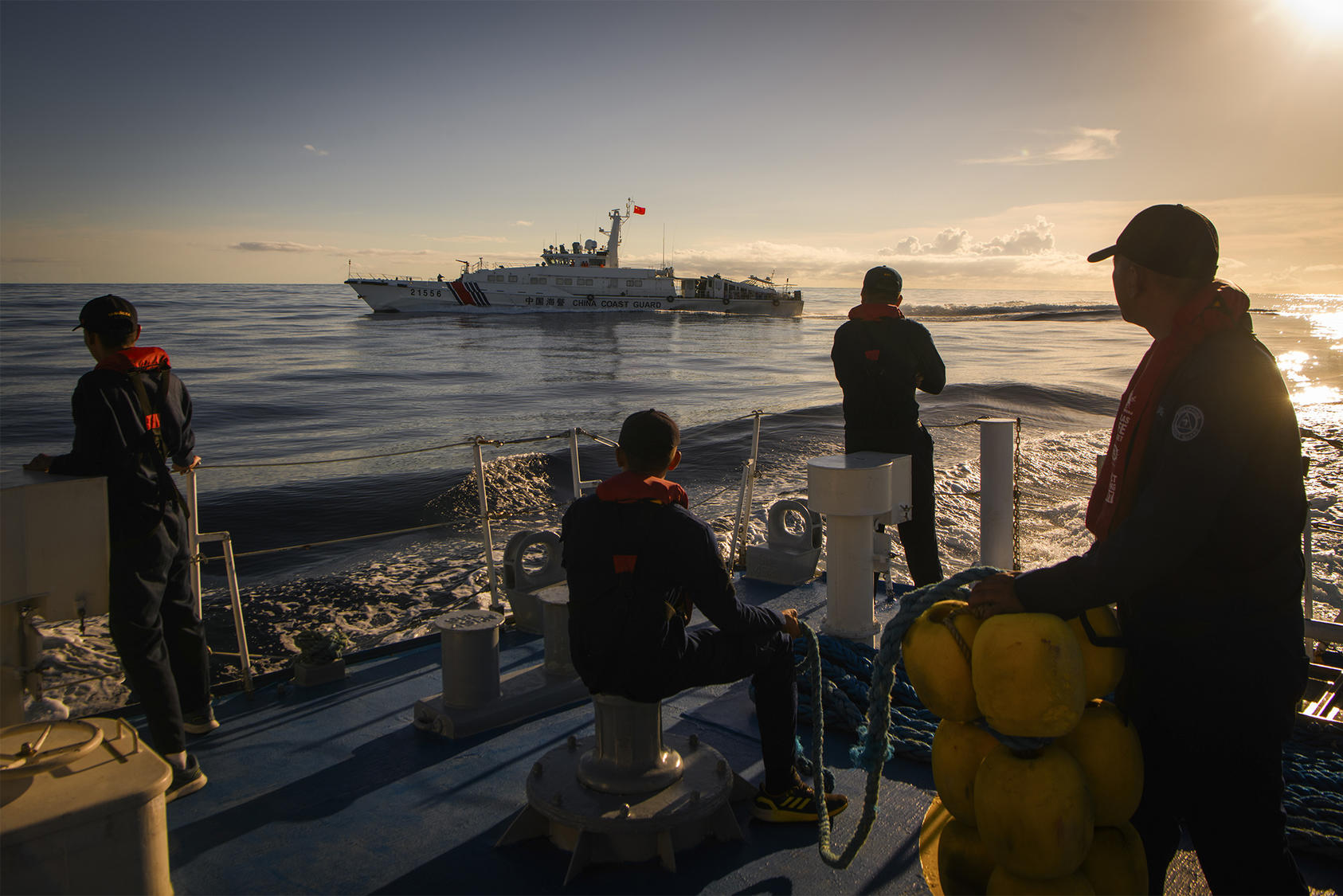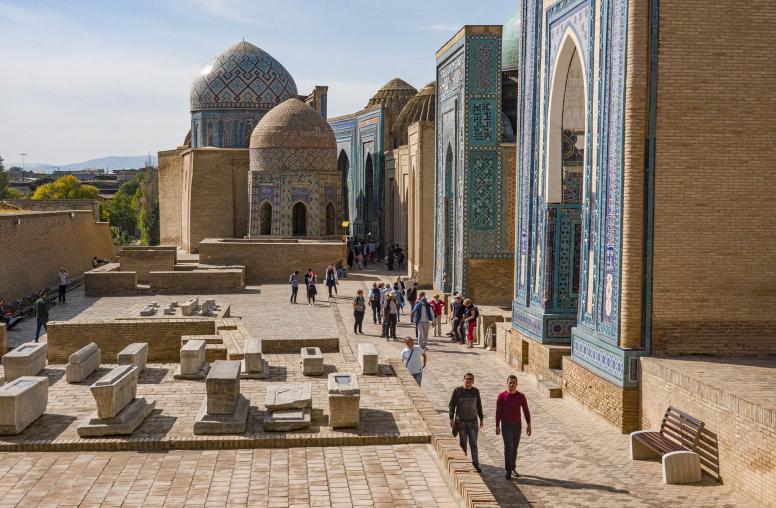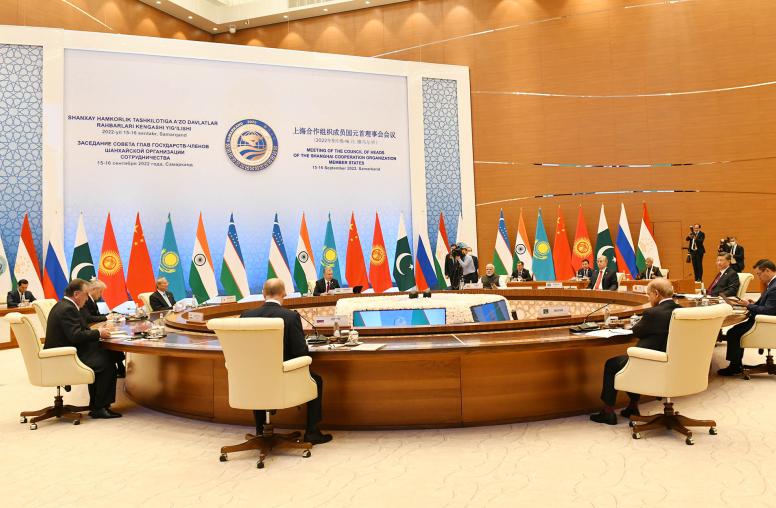China’s ongoing push to change the international security order entered a new phase with the launch of the Global Security Initiative (GSI) in April 2022. The GSI promotes a set of distinct security concepts and principles — many of which reflect Beijing’s longstanding international normative preferences, such an emphasis on territorial sovereignty and noninterference. USIP is tracking how the GSI is being operationalized by China, with an initial focus on Africa, Central Asia and Southeast Asia.

On the global stage, China seeks to position the GSI as a framework for world peace in contrast with the current U.S.-led security order. In addition to boosting the GSI and other initiatives through the United Nations and branding China’s role in international diplomacy as GSI activities, China has begun associating bilateral and regional security activities like counterterrorism partnerships, policing assistance, and cybersecurity cooperation with the GSI as well. While these efforts offer some insights into this still nascent initiative, many aspects of the GSI remain unclear. What are China’s areas and issues of focus? What is new and what is a repackaging of existing projects and relationships? Several USIP essays series will examine these questions and more.
Africa

China’s Bid for a Bigger Security Role in Africa
USIP’s Carla Freeman and the National Bureau of Asian Research’s Bates Gill discuss how, under the banner of the GSI, China is increasingly emphasizing security cooperation and linking it to development in its relations with African countries.
Central Asia

How China Is Leveraging Security Cooperation in Central Asia
Researcher Adina Masalbekova explains how China is exploiting shared concern with Central Asian leaders over unrest and separatism to test and advance its security cooperation strategies under the Global Security Initiative rubric.

China’s Global Security Initiative: Tilting the Balance in Central Asia
University of World Economy and Diplomacy’s Abbos Bobokhonov explores how economic investments prompted China to increase its security influence in Central Asia, as well as why Central Asian states should be wary of tilting the balance between major powers in the region.
Southeast Asia

China’s Rhetoric on Myanmar Doesn’t Match Reality
Researcher Phyu Hnin argues that China’s support for Myanmar’s junta runs counter to Beijing’s stated GSI goals, and that a peaceful, stable and democratic Myanmar better serves China’s long-term interests.

How Crime in Southeast Asia Fits into China’s Global Security Initiative
Professor Bhanubhatra Jittiang explains how China’s collaboration with Southeast Asian countries in addressing non-traditional security threats could preview Beijing’s plans to implement the GSI in the region and beyond.

China's Vision for Global Security: Implications for Southeast Asia
Researcher Thy Try explains that as China tries to establish itself a counterbalance to the U.S.-led security order, Southeast Asian nations should remain skeptical of China’s expanding political influence due to unresolved territorial disputes and questions over cybersecurity.

China’s Alternative Approach to Security Along the Mekong River
Chiang Mai University’s Narut Charoensri explains how the Mekong Subregion became a testing ground for China’s GSI activities — and why China will need to address its own role in the subregion’s security problems to establish its legitimacy as a security partner.
Featured Publications

China’s Global Security Initiative Takes Shape in Southeast and Central Asia
Drawing on field research and discussions with regional policymakers and experts, this report looks at Beijing’s progress in implementing and operationalizing the GSI in the priority regions of mainland Southeast Asia and Central Asia, and it examines key policy implications, explaining why the initiative warrants greater attention on the part of the US policy community.

China's Growing Role in Central Asia’s Security
Bates Gill, senior fellow in Asian security at the National Bureau of Asian Research, discusses his recent trip to Central Asia with USIP colleagues and what they learned about why China has taken a larger role in Central Asia, how Central Asian countries view China’s increased security engagement and why there’s still interest in greater U.S. engagement with the region.

What Does Further Expansion Mean for the Shanghai Cooperation Organization?
The National Bureau of Asian Research's Bates Gill and USIP's Carla Freeman examine how regional security made its way to the top of the agenda, China’s evolving role in Central Asia and why the Shanghai Cooperation Organization's (SCO) expansion has led to frustrations among member states.

China Looks to Fill a Void in Central Asia
USIP’s Carla Freeman, Alley McFarland and Gavin Helf look at what’s driving China’s growing engagement in Central Asia, what these countries are looking to get out of their relationships with Beijing and how the United States can compete with China in the region.

Xi Ramps Up Campaign for a Post-Pax Americana Security Order
While the GSI has gained traction with some states, the recent trips to Washington by the South Korean and Philippine presidents show that even in China’s neighborhood, many countries still see Washington as the world’s leading strategic security partner. As Beijing continues its GSI campaign, Washington should consider the implications for U.S. policy and how it can respond effectively.







